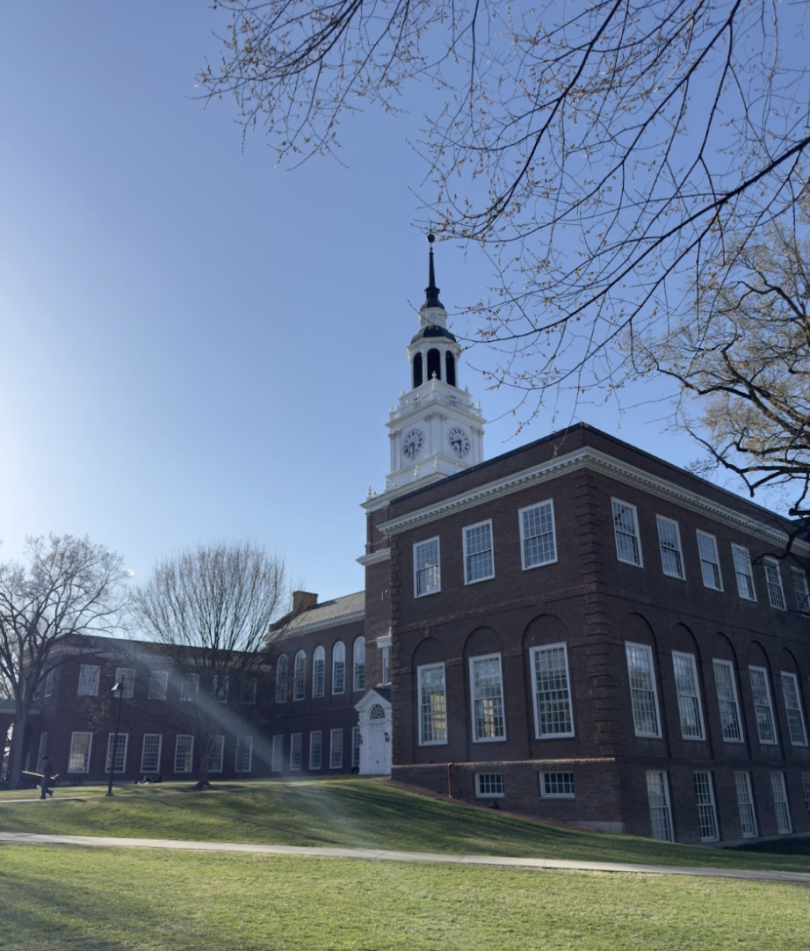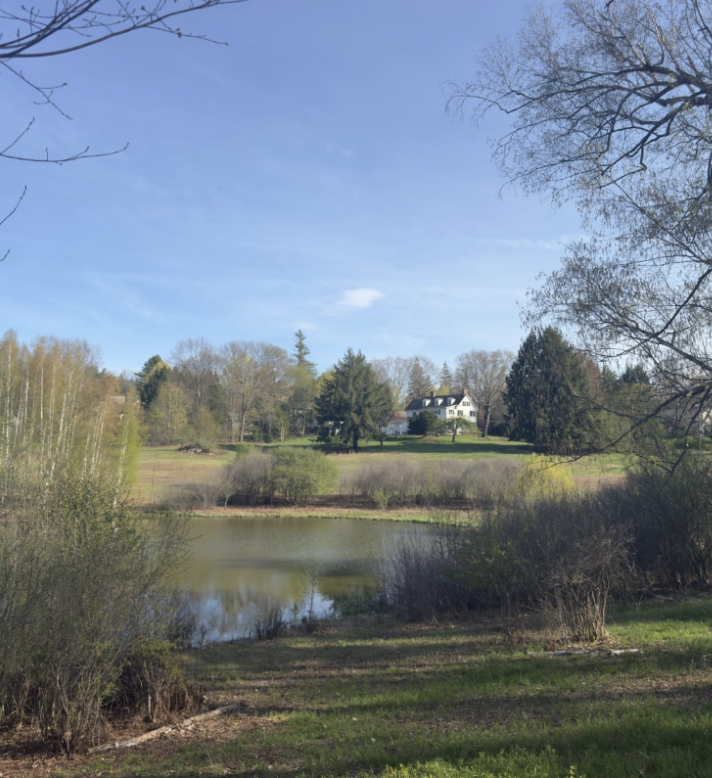

Mario Lopez

You are here

My Revised "Why Dartmouth"
Hello,
In this post, I want to revisit my "Why Dartmouth" supplemental essay. After completing my first academic year at Dartmouth, I want to summarize the numerous opportunities, elements, and experiences in Hanover that have allowed me to feel at home at Dartmouth.
Liberal Arts at the Core of Dartmouth's Curriculum
Dartmouth's liberal arts curriculum offers students a wide range of opportunities to explore various academic disciplines. Dartmouth students take at least 35 academic courses throughout their time at Dartmouth. This leaves plenty of room for academic exploration, allowing students to pursue their multiple interests without having a feeling that they're wasting their time by taking interdisciplinary courses.
An example of this is a Design Thinking course I took in the Department of Engineering. The course focused on learning the different ways to design an item by focusing on human-centered needs. This ranged from designing roller coasters to creating AI-powered solutions that address the specific needs of Dartmouth students. Most importantly, this course taught me skills practical for different disciplines. It improved my interpersonal skills, enhanced my analytical and critical thinking skills, and taught me how to reframe my approach to challenging problems.
Most importantly, this academic opportunity encouraged me to explore different areas to fulfill my distributive requirements—Dartmouth's categorical requirements needed to graduate, which are fulfilled by taking themed classes in various disciplines. Furthermore, each of these distributive requirements teaches students valuable skills—from Social Analysis to Deductive Science—that can be applied to a student's life beyond the academic setting. One course I took to fulfill one of my distributive requirements was International Politics in the Government Department. I loved the content of the course to the point where I changed my major to Government and decided to pursue a concentration in.
Overall, I love the freedom I have to explore interdisciplinary courses and learn "a little bit about everything" while taking away skills that will last me a lifetime.

Professors Who Love to Teach
Dartmouth's professors are some of the most dedicated and curious scholars I have ever met. Their dedication and curiosity intersect with their ability to teach in the classroom. Dartmouth's professors are passionate scholars who love to teach undergraduate students about their respective fields. They constantly encourage students to think critically and outside the box through interactive lectures and discussions.
One of the best things about Dartmouth is that professors teach the vast majority of Dartmouth's classes. This means that professors are incredibly knowledgeable about their fields and can help guide students' interests. This is further exemplified during professors' office hours, where students are encouraged to use this time to ask questions about lectures, explore their interest in the field, or simply have a casual conversation with their professor.
All these factors combined allow students to build close relationships with their professors. These relationships benefit students, as professors can provide academic guidance, offer advice, offer access to academic research, or provide letters of recommendation. Personally, I have spent several office hour sessions discussing academics with professors, seeking professional advice, or engaging in conversations about my interests.

Undergraduate Research Opportunities
One of the main highlights of Dartmouth's focus on undergraduates is the opportunity to further one's academic interests by conducting research with a professor. Students can seek research opportunities to collaborate with faculty members within a department or field of interest to conduct research.
Becoming an Undergraduate Research Assistant is a fantastic opportunity for Dartmouth students, as it enables them to learn meaningful research skills while gaining hands-on experience through a specific project. Additionally, Dartmouth provides funding opportunities for undergraduates engaging in research. This is what I have done as a first-year student.
Recently, I started a research assistant position in the Government Department. I am currently assisting a professor in researching nuclear proliferation and U.S.-North Korea relations. This is a fantastic opportunity, given my interest in international relations, international security, and nuclear proliferation. I am both grateful and excited for this opportunity to learn more about global affairs and improve my research skills. Some of my other friends, who are also first-year students, have become research assistants in the Biology Department, Dartmouth Engineering, and other departments.
All these great opportunities, combined with a tight-knit community, unparalleled access to New Hampshire's outdoors, and an institution that encourages academic exploration, are what make me call Dartmouth home. In retrospect, I never thought I would love a place and a community as much as I have come to love Dartmouth.
Until next time,
Mario
Posts You Might Like


Now that it's been a few years, I've started thinking about what has made my time here special.


A reflection on how Dartmouth offers countless ways to stay connected to literature and writing—even as a side passion—through blogs, courses, campus publications, and creative communities.


Meet Casey Bertocchi, a '26 majoring in government and minoring in environmental science!


Fall is an unmistakable time at Dartmouth: new classes, faces, opportunities!


Read an interview of Ranvir Deshmukh '26 on the computer science community and creating software on campus!


As I begin my junior year, I feel my time at Dartmouth shifting from exploration to deeper focus, with my studies, experiences, and passions beginning to take clear shape.


One of the most unique traditions at Dartmouth is sophomore summer, where students stay on campus to take classes the summer before their junior year. My sophomore summer has been an incredibly special experience!


Senior Fall brings an eventful and diverse courseload, taking up almost all of my time! Find out what I am involved with this term and the incredible variety of classes that Dartmouth has to offer!

